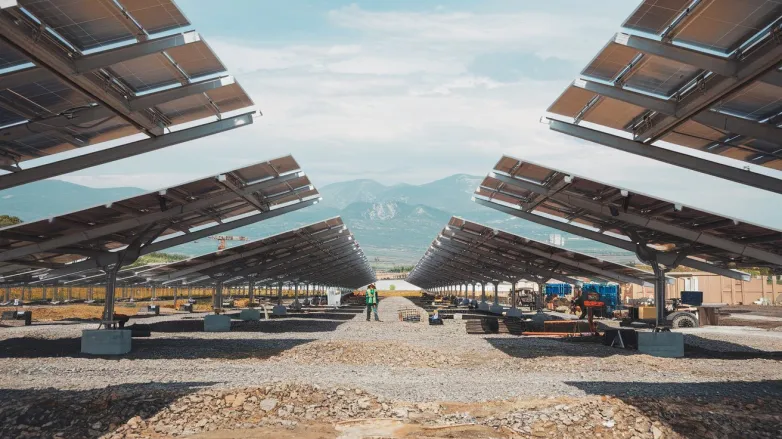Qair Begins Building Solar Parks in Tunisia
- Qair launches solar parks in Tunisia, boosting capacity by 20 MWp and powering 30,000 homes, while paving the way for a greener, sustainable future.

French renewable energy producer Qair has commenced the construction of two solar parks in Feriana, Tunisia, adding a total of 20 MWp to the country’s power generation capacity. The first project is wholly owned by Qair, while the second is a joint venture with Mazarine Energy. Once operational, the photovoltaic farms are expected to generate approximately 44 GWh of electricity annually, sufficient to power 30,000 homes and reduce carbon dioxide emissions by 17,000 tonnes.
The projects, slated for commissioning in February 2025, are backed by a EUR 7.8 million (USD 8.2 million) funding package from the European Bank for Reconstruction and Development (EBRD). They will connect to a nearby STEG substation and are expected to enhance the resilience of Tunisia's national grid while supporting the country's goal of achieving a 35% share of renewable energy by 2030.
How will Qair's solar parks impact Tunisia's renewable energy goals and power generation?
- Contribution to Renewable Energy Goals: By adding 20 MWp of solar capacity, Qair is significantly contributing to Tunisia's ambitious target of having 35% of its energy generated from renewable sources by 2030, supporting the transition from fossil fuels.
- Increased Energy Independence: The development of these solar parks reduces Tunisia's dependency on imported fossil fuels, bolstering energy security and enabling the country to harness its own renewable resources effectively.
- Job Creation and Local Economy Boost: The construction and eventual operation of the solar parks is likely to create jobs not only in the immediate vicinity but throughout the region, supporting local businesses and contributing to socio-economic development.
- Promoting Green Investments: The backing from the EBRD signals confidence in Tunisia's renewable energy sector, potentially attracting further investments and partnerships, thereby stimulating growth in the green economy.
- Grid Resilience Improvement: Connecting to the STEG substation will enhance the stability and resilience of the national grid, allowing for better management of electricity demand and supply, particularly during peak consumption times.
- Environmental Impact Reduction: The projects are set to avoid significant carbon emissions (17,000 tonnes annually), making a positive environmental contribution and helping Tunisia meet its international climate commitments.
- Promotion of Solar Technology: The deployment of cutting-edge solar technology in these parks can serve as a model for future renewable energy projects, promoting innovation and expansion of solar infrastructure throughout the country.
- Community Engagement and Awareness: Qair's initiative could foster greater public awareness and acceptance of renewable energy sources within local communities, leading to a more sustainable mindset among citizens and stakeholders.
- Long-term Economic Stability: By investing in renewable energy infrastructure, Tunisia can create a more stable and predictable energy market, reducing the volatility associated with fossil fuel prices and ensuring long-term economic benefits.
Also read

